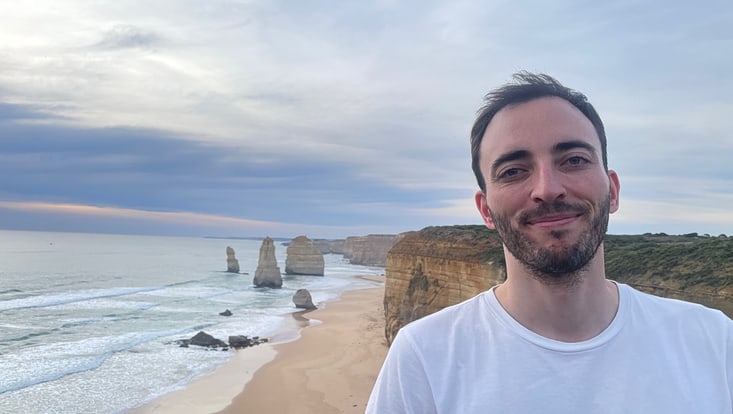MINGZ Funded Research Stay Abroad: Eduardo in Australia
30. April 2025

Foto: UHH/Eduardo Alastrué de Asenjo
The MIN Graduate Center offers support to doctoral researchers, including travel grants for conferences and research stays. These experiences not only enhance academic growth but also foster international collaboration. In this report, Eduardo Alastrué de Asenjo shares insights from his two-month research stay at the University of Melbourne, where he focused on topics related to climates in net-zero futures.
Prior to his departure, Eduardo dedicated significant time to prepare for his research stay. He engaged in virtual meetings with Associate Professor Andrew King to define his research question and conducted extensive literature reviews. This foundational work proved essential, as research stays are often too brief to navigate challenges without thorough preparation. The central focus of Eduardo's project involved characterizing European heat extremes in net-zero stabilized climates. Upon his arrival, he delved into analysing data from the ACCESS-ESM-1.5, leveraging its extensive 1000-year-long net-zero simulations. Weekly discussions with Andrew King facilitated a collaborative environment, allowing Eduardo to refine his findings and progress. He is now actively drafting a manuscript based on this research.
Additionally, Eduardo seized the opportunity to work on three projects during his stay, all of which are poised for publication, showcasing his contributions as a co-author. Moreover, he presented his previous PhD work at seminars across the University of Melbourne, Monash University, and the University of New South Wales in Sydney. He also connected with researchers at these institutions, as well as at the CSIRO centre in Aspendale and the University of Tasmania in Hobart.
Eduardo’s experience in Melbourne broadened the scope of his research, providing access to cutting-edge tools and methodologies while embedding a socially relevant dimension into his work. Reflecting on his time abroad, he stated, "It was an invaluable scientific experience, providing new perspectives on better ways to do science by aiming to combine the best qualities of Australian and German research cultures. I am deeply grateful for the opportunity to go abroad".
